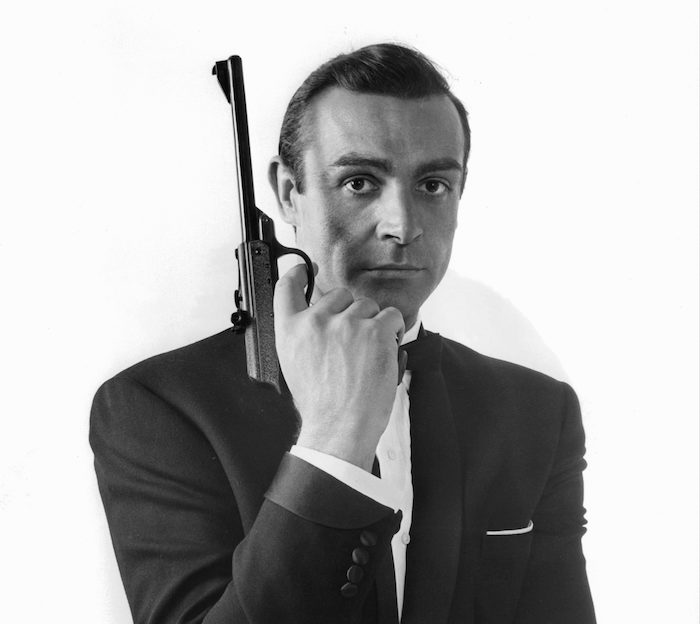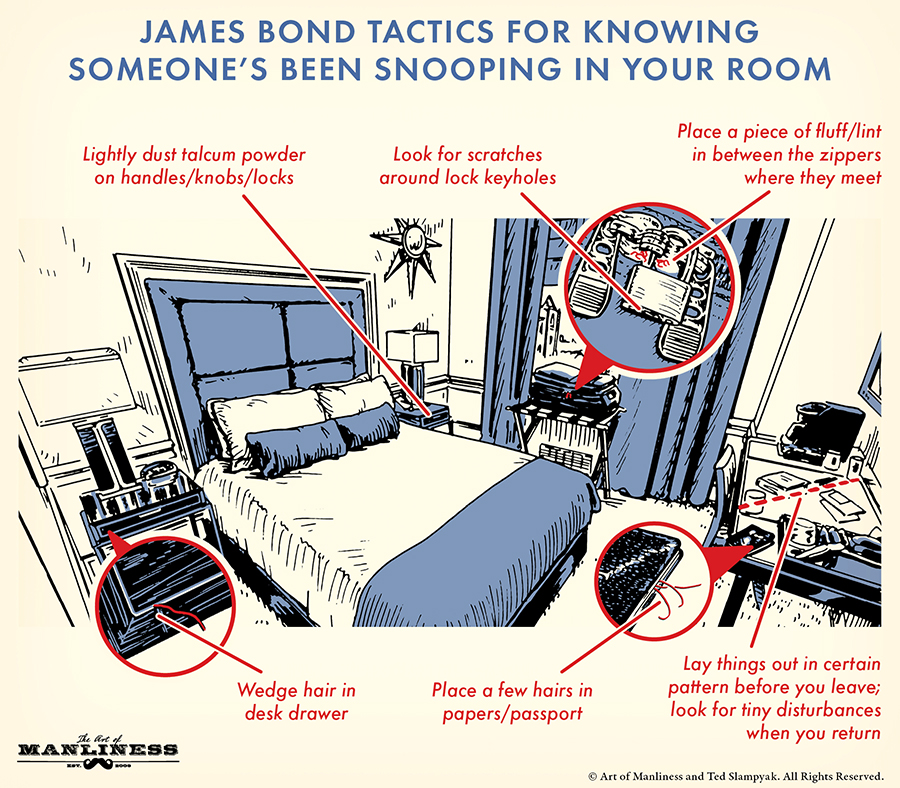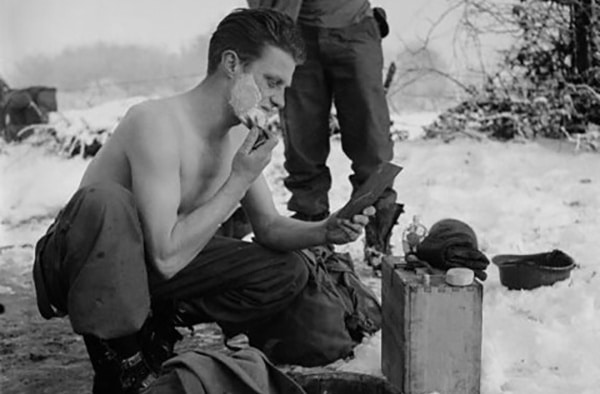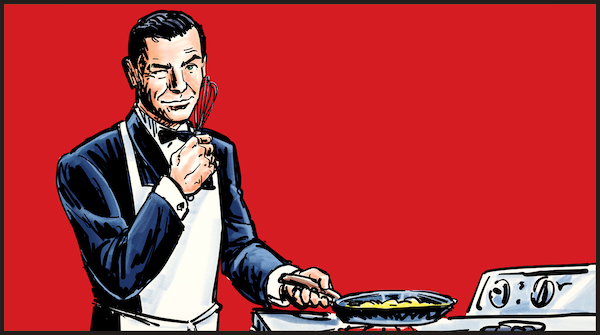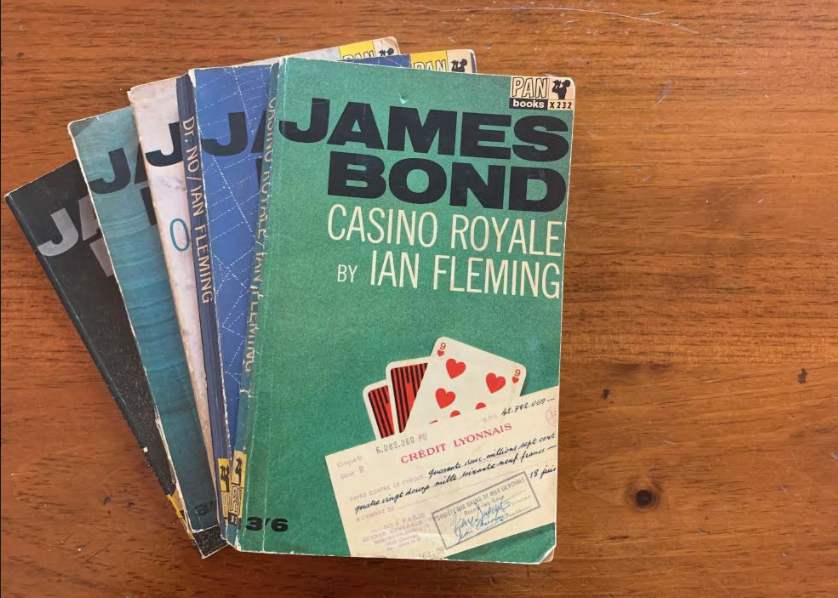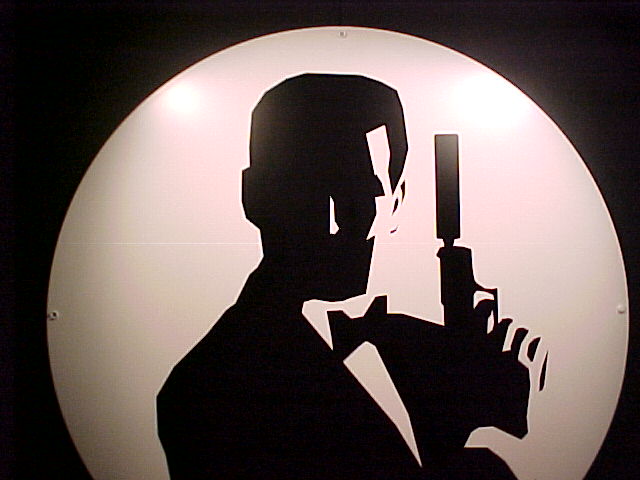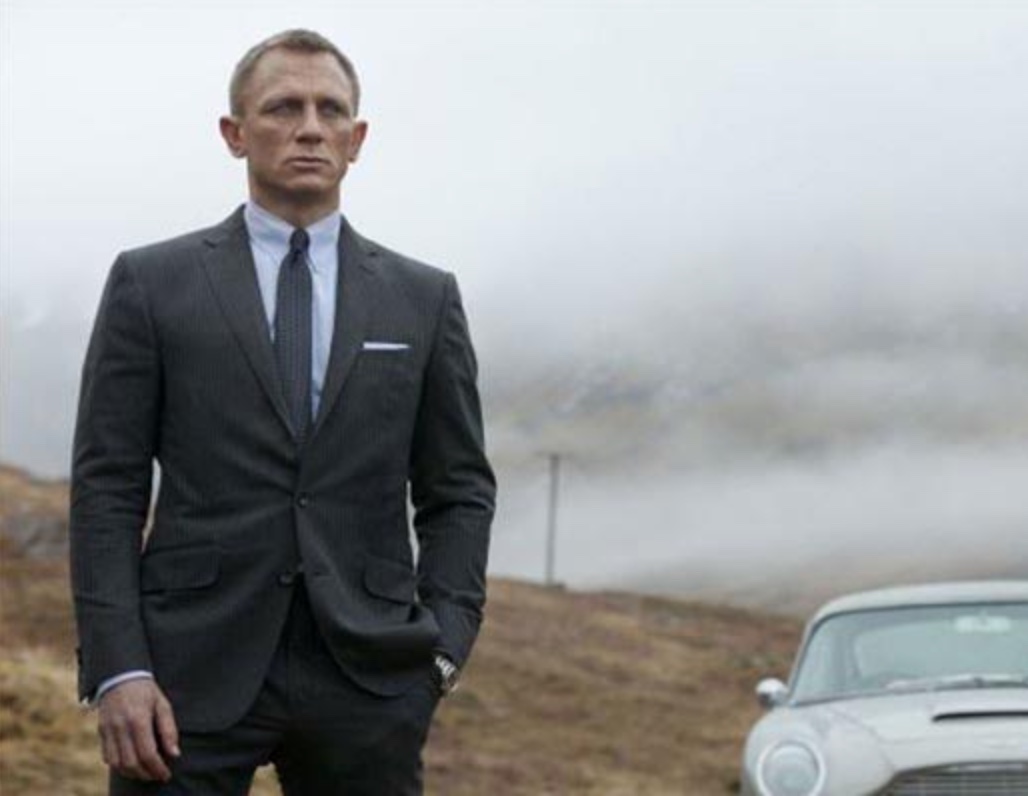As a kid, I was a big James Bond fan. Saw all the movies and read all the books. One thing I noticed about the book version of James Bond was that every time he took a shower, he would start off with the water nice and hot, and then turn it down to cold for the last few minutes. Perhaps this little detail of Bond’s personal bathing regimen was a subtle way for Ian Fleming to illustrate Bond’s Scottish ancestry, as this type of shower is commonly known as a “Scottish Shower.” Who knows.
Being an impressionable kid, I started doing it too. I didn’t know the proper name for this type of shower, so I just called it the “James Bond Shower.” Taking a shower that started hot and ended cold proved to be quite invigorating. It woke me up and added a bit of pep to my step throughout the day. I’ve continued the practice of the James Bond Shower into adulthood. Along the way, I’ve discovered that cold water baths have been used for centuries as a way to treat various ailments and that modern studies lend credence to the health claims associated with this age old treatment.
Below we give a brief rundown on the benefits of the James Bond Shower.
Watch the Video
A Brief History of Cold Water Therapy
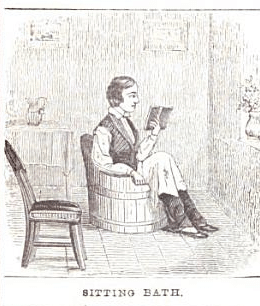
“Nothing like sitting in an ice cold bath with nothing but my bare bum in it while reading the latest Dickens novel to invigorate and enliven the senses. Tally ho!”
James Bond wasn’t the first to enjoy the benefits of a shot of cold water. In ancient times, hot water was a luxury. People had to live near a hot springs in order to enjoy the comfort of a hot bath, so for most of human history people bathed in cold water. But even when the Ancient Greeks developed heating systems for their public baths, they continued bathing in cold water for the health benefits.
The Spartans, hard-asses that they were, felt hot water was for the weak and unmanly. When they did take baths (which was, like, once a year) they used only cold water because they thought it tempered the body and made it vigorous for ass kicking.
During the first century, Finnish folks would sweat it out in saunas and then jump into an ice cold lake or stream, a pastime which is referred to as “avantouinti” or “ice hole swimming” and is still enjoyed by modern Finns and others wild and woolly Scandinavians.
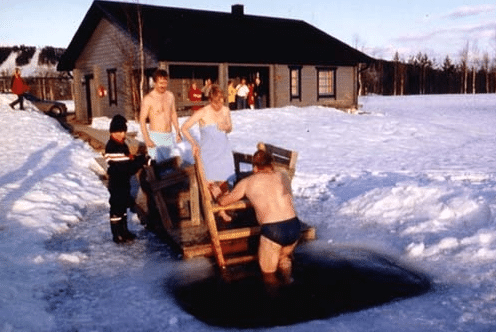
Many cultures incorporated a cold water dousing into their religious ceremonies. Some Native American tribes would alternate between sitting in a sweat lodge and jumping into an icy river or snow bank. Ancient Russians also took frequent plunges into ice cold rivers for health and spiritual cleansing. Japanese practitioners of Shinto, both in ancient and modern times, would stand under an icy waterfall as part of a ritual known as Misogi, which was believed to cleanse the spirit.
In the 1820s, a German farmer named Vincenz Priessnitz started touting a new medical treatment called “hydrotherapy,” which used cold water to cure everything from broken bones to erectile dysfunction. He turned his family’s homestead into a sanitarium, and patients flocked to it in the hope that his cold water cure could help them. Among his clientele were dukes, duchesses, counts, countesses, and a few princesses to boot.
Priessnitz’s hydrotherapy soon spread to the rest of Europe and eventually to the United States. Celebrities and other famous folks took to it, like, well, a duck to water and helped popularize the cold water cure with the masses. For example, Charles Darwin (a chronically sick guy and owner of an awesomely manly beard) was a huge proponent of hydrotherapy. The first hydrotherapy facility opened up in the U.S in 1843, right when the sanitarium craze hit America. By the the end of the 19th century, over 200 hydrotherapy/sanitarium resorts existed in the U.S., the most famous being the Battle Creek Sanitarium founded by John Harvey Kellogg. You know. The guy who invented corn flakes. And believed in the awesome power of enemas and a “squeaky clean colon.”
The popularity of hydrotherapy began to decline in the 20th century as many in the medical field moved to drugs to treat illnesses. As doctors concentrated on conventional medicine, more holistic methods began to be seen as quackery. While hydrotherapy was prescribed less and less to cure illnesses, doctors continued to use it to treat injuries such as strained muscles and broken bones. You’ll find athletes today taking ice baths to speed their recovery from injuries and intense workouts.
Benefits of Cold Water Showers
While doctors may no longer instruct their patients to take a cold bath and call them in the morning, a shot of cold water can still impart real health benefits:
1. Improves circulation.
Good blood circulation is vital for overall cardiovascular health. Healthy blood circulation also speeds up recovery time from strenuous exercises and work. Alternating between hot and cold water while you shower is an easy way to improve your circulation. Cold water causes your blood to move to your organs to keep them warm. Warm water reverses the effect by causing the blood to move towards the surface of the skin. Cold shower proponents argue that stimulating the circulatory system in this way keeps them healthier and younger looking than their hot water-loving counterparts.
2. Relieves depression.
Lots of great men from history suffered bouts of depression. Henry David Thoreau is one such man. But perhaps Thoreau’s baths in chilly Walden Pond helped keep his black dog at bay. Research at the Department of Radiation Oncology at Virginia Commonwealth University School of Medicine indicates that short cold showers may stimulate the brain’s “blue spot”– the brain’s primary source of noradrenaline — a chemical that could help mitigate depression. I guess a bout of the blues isn’t so bad after all.
3. Keeps skin and hair healthy.
Hot water dries out skin and hair. If you want to avoid an irritating itch and ashy elbows, turn down the temperature of your showers. Also, cold water can make your manly mane look shinier and your skin look healthier by closing up your cuticles and pores.
4. Strengthens immunity.
According to a study done in 1993 by the Thrombosis Research Institute in England, individuals who took daily cold showers saw an increase in the number of virus fighting white blood cells compared to individuals who took hot showers. Researchers believe that the increased metabolic rate, which results from the body’s attempt to warm itself up, activates the immune system and releases more white blood cells in response.
5. Increases fertility.
Trying to become a dad? Cold showers are good for your little swimmers. Your testes aren’t meant to get too hot; that’s why they hang outside your body. Sperm counts decrease when the temperature of a man’s testes increases. Experiments done in the 1950s showed that hot baths were an effective contraceptive. Men who took a 30 minute hot bath every other day for 3 weeks were infertile for the next six months. More recently, the University of California at San Francisco did a study with men who were exposed to 30 minutes of “wet heat” (hot baths and such) a week. When the men cut this exposure out, their sperm count went up by 491%, and their sperm’s motility improved as well. While switching from a hot to cold shower may not have as dramatic an effect, if you’re trying to create some progeny, it surely won’t hurt.
6. Increases energy and well-being.
Every time I end a shower with cold water, I leave feeling invigorated and energized. Your heart starts pumping, and the rush of blood through your body helps shake off the lethargy of the previous night’s sleep. For me, the spike in energy lasts several hours. It’s almost like drinking a can of Diet Mountain Dew, minus the aspartame. And while it hasn’t been studied, many people swear that cold showers are a surefire stress reducer. I’m a believer.
Getting Started with Cold Water Showers
If you’ve spent most of your life taking hot showers, suddenly turning the dial in the other direction can be a big shock to the system. I took a break from the James Bond Showers for a few months. When I decided to get started again with them, my heart almost jumped out of my chest, and I nearly passed out from hyperventilating when the cold water hit my body. Too much, too soon.
My suggestion (based on personal experience) is to gradually decrease the temp of the water so your body can adjust.
Which reminds me, some people with certain conditions should avoid cold showers because of the shock to the body’s system. If you have the following conditions, you’ll have to harness your inner 007 another way:
- Heart disease. If my normal, healthy heart felt like it was about to explode, imagine how a diseased heart will feel.
- High blood pressure. The contraction in your blood vessels caused by cold water could cause a stroke. Apparently.
- Overheated or feverish. Your blood vessels need to dilate in order to release heat. Cold water causes them to constrict.
Okay. If you’re healthy enough for a James Bond Shower, here’s how it’s done.
1. Start off with the hot water.
2. Wash your hair with some Pinaud Elixir shampoo, just like 007.
3. When you’re ready to rinse, just turn it down to cold. Bond would spend a few minutes under the cold water, meditating about a lost love or on how awesome his job is.
4. As you walk out the shower, kill the hitman that’s been hiding in the closet using nothing but a towel and a Scotch tumbler.
5. Say a pithy one liner; proceed to put on tux.
You’ll start seeing the benefits right after the first shower, and it only gets better as you continue. While cold water showers won’t give you the charm or skills of 007, you’ll feel like a new man.
Listen to our podcast on the benefits of cold exposure:
Related Content


